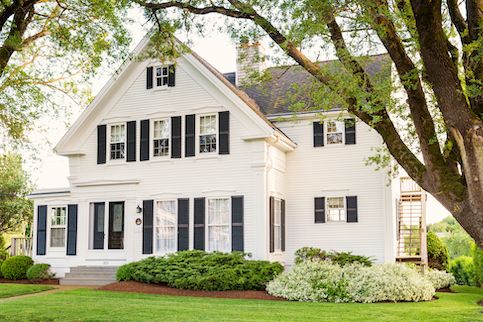Homes sold as-is appeal to buyers because the asking price usually is lower than it is for similar properties in the same area. But there are risks to buying a home as is, as it may be in poor condition and require expensive fixes.
What Does It Mean To Buy A Home As-Is?
Buying a house as-is means the seller is telling you they won’t make repairs or upgrades. This doesn’t let the seller misrepresent the condition of the home, it just means you accept the home’s condition when you agree to buy it. Some states require the seller to provide a seller’s disclosure and give buyers some legal options if an undisclosed defect is discovered after the sale.
Not Every As-Is Home Is A Fixer-Upper
Just because a home is sold as-is doesn’t mean it’s in poor condition and needs expensive repairs. The seller may simply lack the cash or time needed to make repairs. Offering the home for sale as-is communicates that to potential buyers. It also may be more convenient for a seller who’s already moved out and unable to manage or oversee repairs before selling.
“Other times, the house is in good condition, and it’s an estate, so the executor may just want to sell the home and move on with as little hassle as possible,” Katie Messenger, a Realtor with Bello Dimora Group in Louisville, Kentucky.
Foreclosure is a common reason homes are sold as-is, especially if the previous owners left the home in poor condition. If a bank owns a foreclosed home, it might list it as-is and at a relatively low cost to compensate for the buyer’s need to make repairs.
What’s Your Goal?
Buy A Home
Discover mortgage options that fit your unique financial needs.

Refinance
Refinance your mortgage to have more money for what matters.
Tap Into Equity
Use your home’s equity and unlock cash to achieve your goals.
7 Steps To Take When Buying A House As-Is
When buying a house as-is, you’ll want to make sure you’re comfortable with its condition. Here are some steps to make the process as direct as possible.
1. Insist On A Home Inspection
A home inspection is essential to any home purchase, especially when buying a home as-is.
“Every single home buyer in America should obtain a home inspection before buying a home,” says Rosanna Rivera, a real estate broker in Altamonte Springs, Florida. “Not only is a home inspection a crucial element but as any real estate agent will tell you, it offers disclosures that an agent can’t provide.”
What if the current homeowner refuses a home inspection? A seller might not allow a home inspection because they know – or they believe it’s likely – that the inspection will reveal serious problems that could significantly decrease the value of their property. Either way, you may want to avoid the transaction altogether, request more information, or try to negotiate a lower price.
2. Know Your State’s Disclosure Regulations
The seller is responsible for disclosing any known defects. The presence of lead-based paint is the only defect currently included in federal disclosure regulations. State laws have their own disclosure requirements. Flood damage is a common requirement at the state level.
For example, let’s say your state’s disclosure regulations include water damage. If the home inspection finds there’s more water damage than the seller disclosed, you have the option to cancel the sale. Alternatively, you could ask the seller to reduce their asking price. If you find damage after closing on the home, your state may allow you to sue the seller for compensation.
3. Negotiate A Home Warranty
A home warranty is a service contract that covers the cost of repairing or replacing appliances and systems such as heating, ventilation, and air conditioning.
A home warranty can save you money and reassure a new home buyer that they won’t have an enormous repair bill to pay right after moving in. Buyers can ask sellers of as-is homes to include a home warranty, or they can try to negotiate a lower price that allows them to purchase a home warranty themselves.
4. Hire An Experienced Real Estate Agent
A real estate agent can help you navigate the home buying process, avoid potential money pits and spot any red flags that pop up along the way. An experienced agent also can help you make a competitive offer for an as-is property that factors in the cost of any repairs you’ll need to make.
Ready To Become A Homeowner?
Get matched with a lender that can help you find the right mortgage.
5. Understand What’s Being Sold As-Is
The as-is condition may not apply to the entire home. It could apply to the whole house or only to certain parts of the property. Garages, roofs, pools, fireplaces, and outbuildings such as sheds or barns can all be listed as-is while the rest of the property is not. Knowing what’s considered as-is can help you accurately assess the sale price and whether it’s a good value.
6. Research Financing Options For As-Is Home Sales
Lenders may be reluctant to finance a home in poor condition. Let’s look at how different types of loans view homes sold as-is.
Government-Backed Loans
Government-backed mortgages from the Federal Housing Administration, U.S. Department of Agriculture or Department of Veterans Affairs require a home to meet specific requirements to ensure it’s safe to live in. That means you might be unable to use a VA, FHA or USDA loan to buy an as-is property.
“To qualify for this type of loan, properties cannot have defects like roof issues, chipping paint or other major deficiencies,” says Nancy Brook, a real estate broker in Billings, Montana.
Conventional Loans
Conventional mortgages tend to have less stringent property requirements. For example, cracked windows, a damaged driveway or minor interior wall damage might not present as much of a challenge for loan approval. However, conventional loans typically require borrowers to have stronger finances, including a higher credit score.
7. Explore Other Ways To Afford A Home
The FHA offers 203(k) rehabilitation loans that let you borrow enough to buy and renovate a home. There also are rent-to-own options, portfolio loans and nonqualified loans to consider. Additionally, there are programs offering down payment assistance to buyers, and others help people in specific professions, such as doctors, law enforcement and education, afford a home.
Take The First Step To Buying A Home
Find a lender that will work with your unique financial situation.
Pros And Cons Of As-Is Home Sales
If you’re considering buying a home as-is, consider the pros and cons of going this route. Here are a few points to keep in mind.
Buying A Home As-Is: The Pros And Cons
| Advantages | Disadvantages |
|---|---|
| A more affordable purchase price | The possibility you’ll discover expensive repairs are needed |
| Leverage to negotiate a home warranty | Potential difficulties in securing financing |
| Some protection from defects, thanks to disclosure laws | In many cases, the need for costly repairs that can add up quickly |
The Bottom Line
Buying a home as-is isn’t the right move for everyone. If you decide to look at as-is properties, get a home inspection to avoid unexpected surprises. Also, research mortgage lenders to make sure you can find one that will fund an as-is purchase, and hire an experienced real estate agent to assist you with the process.

Patrick Chism
Born and raised on a farm in the Ozarks, Patrick Chism has a knack for making the best out of the worst situations. Where others see flooded farmland, he sees lakefront real estate. Where others see an infestation of bees, he sees free pollination and an upstart honey shop. Patrick’s articles will help you make the most out of the least, maximizing your returns while keeping a close eye on the wallet. When he’s not writing, Patrick likes hiking, gardening, reading and making healthy foods taste like unhealthy foods.












